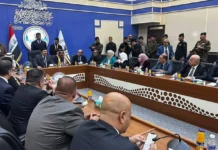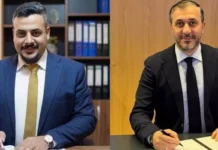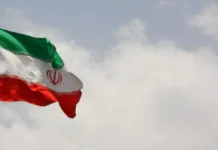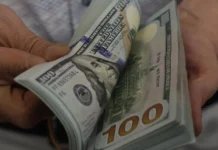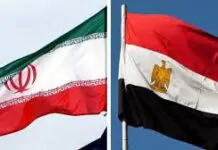Saleh Ends The Controversy: The 2025 Budget Will Remain Close To 156 Trillion Dinars, With Domestic Borrowing.
Time: 2025/05/06 Read: 2,100 times {Economic: Al Furat News} The Prime Minister’s economic advisor, Mazhar Mohammed Salih, announced that Iraq’s 2025 budget will remain close to 156 trillion dinars or less, with domestic borrowing continuing at the same level as in 2024.
Saleh explained, in a statement to {Euphrates News}, that: “The average oil price in the first quarter of 2025 reached about $75 per barrel before the impact of the oil asset cycle began to drop prices to $63.
This decline in prices coincided with the cancellation of OPEC+ quotas, in addition to the impact of the US trade war and a temporary contraction in the global economy.”
With the decline in oil prices, Saleh expected that “the relative increase in exported oil quantities will compensate for this decline,” stressing that “operating expenses will be subject to greater control within a flexible financial space, which will provide greater opportunities to manage financial resources prepared for spending.”
Saleh praised “the accelerating success in the field of fiscal and monetary policy,” explaining that “the government seeks to achieve economic stability in both its financial and monetary aspects.”
The advisor concluded by saying that “with this coordination, high guarantees are provided to achieve sustainable economic development, as the world is witnessing rapid progress in Iraq’s economic stability.” LINK
The United Nations And 18 Countries Meet With The Iraqi Banking Sector To Discuss Banking Relations At The Headquarters Of The Association Of Private Banks.
Part of the meeting Banks Economy News – Baghdad Under the auspices of the United Nations Assistance Mission for Iraq (UNAMI), the Iraqi Private Banks Association organized a meeting that included Arab and foreign ambassadors, representatives of international organizations operating in Iraq, and Iraqi banks, with the attendance of the Central Bank of Iraq.
The meeting was attended by the Special Representative of the Secretary-General of the United Nations for Iraq and Head of UNAMI, Mohammed Al-Hassan; the Deputy Governor of the Central Bank of Iraq, Dr. Ammar Hamad; the Regional Director of the World Bank, Jean-Christophe Carré; the Head of the European Union Delegation to Iraq, Thomas Seiler; and the Representative of the United Nations Office on Drugs and Crime, Ali Al-Barir; in addition to the ambassadors of the United Kingdom, Germany, France, Japan, Switzerland, Hungary, the Netherlands, Italy, Greece, Denmark, the Czech Republic, the United States, Saudi Arabia, the Sultanate of Oman, Qatar, Kuwait, and the United Arab Emirates.
In his speech, Al-Hassan emphasized that the meeting precedes the “Arab wedding” represented by the upcoming Arab Summit, and represents the beginning of strengthening communication between the Iraqi banking sector and the international community.
He noted that no country’s economy can thrive without a strong banking sector. He also expressed his gratitude to the Iraqi Private Banks Association for organizing the meeting, appreciating the ambassadors’ positive interaction.
For his part, Wadih Al-Handhal, Chairman of the Iraqi Private Banks Association, explained that the meeting comes at a crucial moment in Iraq’s financial and economic transformation.
It aims to strengthen the banking sector’s relations with international and diplomatic partners, creating an integrated banking environment based on transparency and compliance with international standards, capable of supporting sustainable development, stimulating investment, and serving those underserved by banking services.
Al-Handhal added, “We believe that building bridges of trust with the international community begins with constructive dialogue and mutual cooperation. From this perspective, the Iraqi banking sector continues its solid partnerships with your prestigious financial institutions, seeking to open broader horizons for investment and enhance stability and shared prosperity.”
He also expressed his sincere thanks and appreciation to Dr. Mohammed Al-Hassan for his significant efforts in mobilizing international support to enhance stability within Iraq, support reform processes, and consolidate the principles of human rights and good governance.
Al-Handhal explained that Iraqi banks look forward to direct dialogue with your countries’ banks, under the auspices of the United Nations, to open new partnerships that serve the Iraqi and your economies. This can be achieved by expanding correspondent accounts, financing development projects, promoting digital transformation, issuing green bonds, and attracting promising investments to deepen sustainable stability.
Ali Tariq, Executive Director of the Iraqi Private Banks Association, presented a review of banking developments in the country, explaining that deposits reached 120 trillion dinars, while credit reached 73 trillion dinars. Electronic payments also increased from approximately $1 billion annually to approximately $17 billion by 2024. https://economy-news.net/content.php?id=55194
Head Of The Economists Alliance: The Challenges Facing The Iraqi Economy Are Great…And These Are The Most Important Ones
Tuesday, May 6, 2025 | Economic Number of readings: 87 Baghdad/ NINA / Head of the Iraqi Economic Alliance (Economists), Adi Sadiq Al-Alawi, stressed that his alliance aims to promote sustainable development by activating dialogue between the public and private sectors, providing economic advice to government agencies, and supporting policies that diversify sources of income and reduce dependence on oil.
Al-Alawi told the National Iraqi News Agency ( NINA ) that the Iraqi economy is witnessing gradual improvement today, especially in the agriculture and communications sectors, but the challenges are great. Progress is slow due to fragile infrastructure, administrative corruption, and unstable legislative policies.
He added, “We see positives in the increase in foreign investment, despite our lack of conviction in the fairness of the opportunities provided, and the government’s move towards supporting the private sector, despite its scarcity, and regional interconnection projects that may stimulate trade.”
He indicated, “Real growth requires restructuring the banking system, implementing investment-attractive legislation, and a greater focus on the knowledge economy.”
Al-Alawi pointed out, “Iraqi economists suffer from weak opportunities to implement their research on the ground and a lack of support for innovation, in addition to the migration of talent due to job instability.
He continued, “We seek to address these issues by pushing for the adoption of a competition protection law, establishing a fund to support entrepreneurial projects, and launching scholarships for scholarships in modern economic specializations.”
Regarding the establishment of the “Economists” coalition, he explained that it was established in 2018 as a comprehensive platform For Economic Competencies, it was officially registered in 2021 as the first official economic party in Iraq.
Today, it includes more than 6,000 members and affiliates of economic experts, businessmen and women, academics, and specialists in the fields of finance, trade, industry, renewable energy, and the digital economy. / https://ninanews.com/Website/News/Details?Key=1225155
For current and reliable Iraqi news please visit: https://www.bondladyscorner.com/


